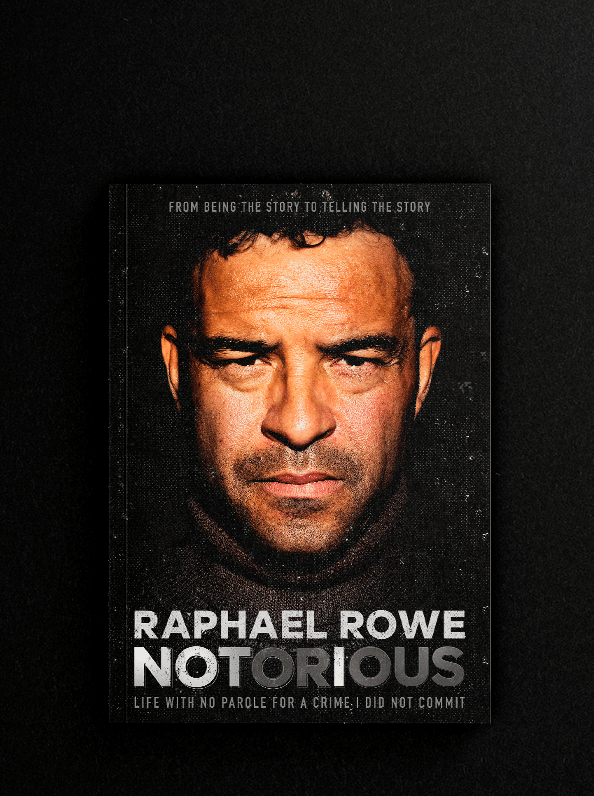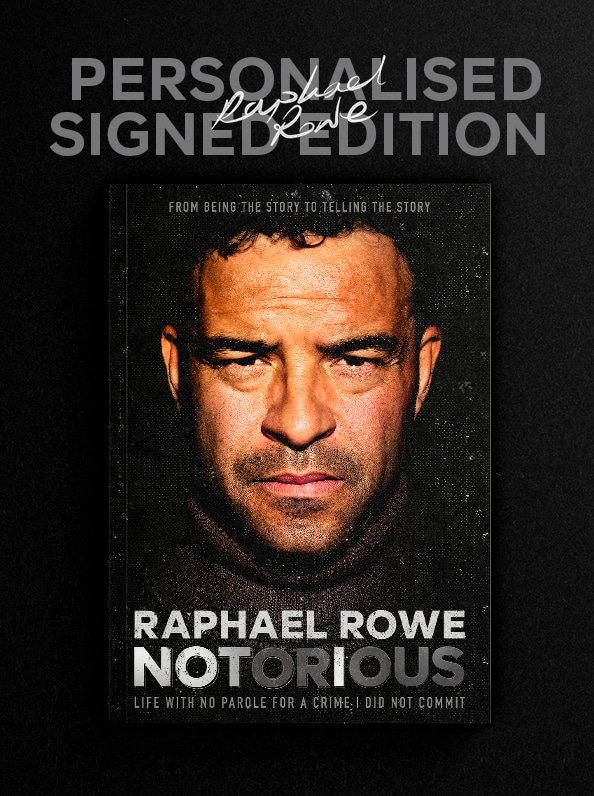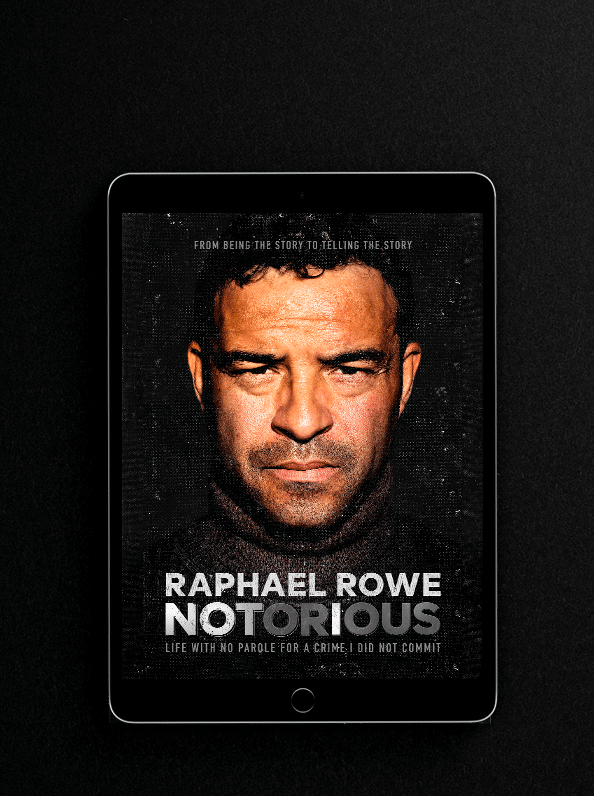RAPHAEL’S STORY
Raphael Rowe is a man who spent 12 years in prison for crimes he did not commit. In fact, the only reason he’s here today and can share his story is because he never stopped fighting to prove his innocence.
Eventually, in 2000, Raphael won, and his convictions were overturned by the Court of Appeal meaning he was finally free…but changed forever. Raphael now knows first-hand what injustice feels like, looks like and what prison can do to a human being. He may be scarred by his life experiences, but not once has he ever allowed it to hold him back.
As the first person of mixed race with dreadlocks to report for the British Broadcasting Corporation, on both television and radio (Today Programme, Six O’clock News, Panorama and The One Show), Raphael helped to re-write the rules on what makes an international BBC correspondent.
He is an experienced undercover and investigative journalist and presenter on both prime-time television and international platforms, who aims to inspire an under-served and diverse audience across the globe.
ingWHAT RAPHAEL DID NEXT WAS CREATE HIS OWN PIECE OF HISTORY
Raphael now had a voice that he wanted to use and in less than a year following his release, he’d begun a new career as a journalist and broadcast reporter for the BBC, starting at the Today programme, the pinnacle of BBC Radio 4. Despite there being many other reporters, none were ex-prisoners, none had dreadlocks, and none were mixed race, which meant Raphael was slowly but surely breaking barriers and stereotypes, paving the way for change one step at a time.
In 2003 he took the move over to BBC1 for The Six O’Clock News which was and still is widely considered the pinnacle of prime-time television. This was a turning point in Raphael’s career that propelled him and by 2004, he was making hard hitting documentaries for BBC2 and BBC3, covering issues such as serial killers, knife crime, drugs, corrupt UN peacekeepers, environmental crime, and terrorism. One of Raphael’s investigations even played a pivotal part in freeing a man convicted of the assassination of a high-profile BBC celebrity.
The BBC recognised Raphael’s tenacity, courage, and life experience that most investigative journalists can only read about, which culminated in him becoming a correspondent for the prestigious Panorama show, the world’s longest running current affairs TV series. Once again, he became the first person of colour and first ex-prisoner to have achieved such a position. For Raphael, this was a far cry from those years in prison cells, fighting to prove he did not commit the crimes of which he was accused. He was now able to use that experience and the skills it taught of patience and perseverance to become a recognised household name.
Raphael’s work has taken him to some of the world’s most dangerous places, but it’s an environment he thrives in. He’s operated undercover to reveal injustice and crime, smuggled conflict diamonds to expose a corrupt system, secretly filmed Congolese militia rebels to expose their ruthless tactics and even shone a light on the illegal international logging and deforestation of some of the World’s most precious resources. Raphael has, in some cases risked his own life to take these challenges on, even once to save the life of an orangutan (!) but maintains he would do it all again in a heartbeat.
He currently hosts Inside the World’s Toughest Prisons on Netflix, which sees him spend time as an inmate in maximum security prisons. But even with his experiences of life inside behind him, many still beg the question as to why, as an innocent man, he would choose to do this after spending so many years fighting to get out?
BIOGRAPHY
Having learned about criminal behaviour, crime, and the law from the confines of a maximum-security prison cell, he transferred the determined questioning and methodological research skills acquired to become a respected and unwavering reporter, who now specialises in social and criminal justice. His main aim of going to some of the toughest prisons in the world is to shine the light on what justice, injustice and reform look like around the world.
Raphael’s visited many high security prisons around the globe, including the Democratic Republic of Congo, Britain, Papua New Guinea, Colombia, Brazil, Ukraine, Belize, Romania, Costa Rica and South Africa to name a few. Inside he’s filmed with some of the world’s most dangerous prisoners and has spoken to guards, prisoners’ families, and politicians about crime and punishment. Although risky, Raphael believes all of this is crucial to show an insight into how prisons around the world work, as he believes it’s with greater knowledge and understanding that real reform can take place.
His reporting and investigative journalism about prison, crime and criminal behaviour has significantly changed people’s perceptions. Although he left school at 16 with limited academic achievements, Raphael believes this isn’t a failure and rather part of who he is. He’s managed to overcome huge financial and social challenges that growing up in a deprived area scarred by racial discrimination and inequality faced him with.
Now, Raphael is successful in his chosen career due to being a curious individual, skilled researcher, experienced interviewer, as well as a tenacious investigator of facts. He has had to face many challenges and has learned to channel these adversities into action and energy, believing this trait is within all of us and that finding yourself can be the ultimate challenge.
Raphael volunteers his time to social justice projects he cares about and is passionate about encouraging and motivating people to overcome their own adversities and achieve their own dreams. Whether they come from a deprived background with limited qualifications, are successful postgraduates, or just an ordinary person seeking inspiration, he is dedicated to implementing real personal growth and change.
The response of the viewers to Raphael’s investigations around the world have inspired him to continue with his work and the curiosity to understand more about why people commit crimes, as well as the different responses and reactions of societies towards criminal behaviour is unwavering. This curiosity is something he believes he has in common with the viewers as it led him to study a degree in Criminology late in life. Raphael maintains it’s important to change the narrative surrounding crime, criminals and the criminal justice system by having more transparent discussions on what works, and what does not. Through his lived experiences, it is proven that these conversations reduce both the causes of crime and understand the effect criminality can have upon both the victims of crime and society as a whole.



